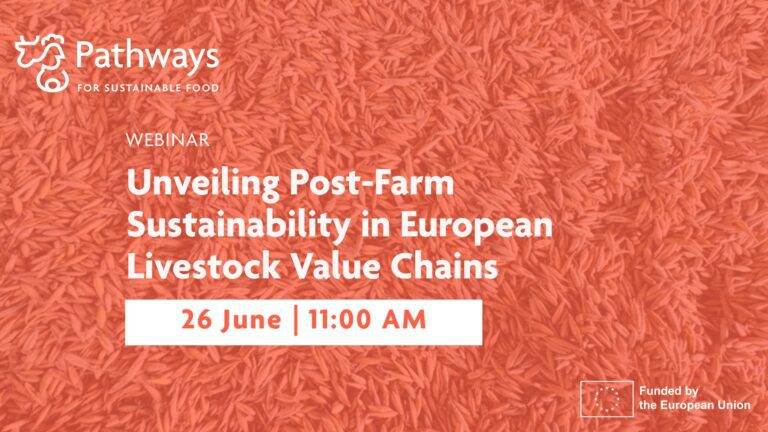26 June 2025 (11-12 CET)
Online
In the context of an increasingly urgent ecological transition of the European agri-food system, traditional sustainability assessments of livestock value chains remain narrowly focused on primary production. This limited perspective fails to capture the complexity and full scope of sustainability challenges across the entire livestock system.
There is a pressing need to identify strategic leverage points that can enable transformative change throughout the livestock value chain. This involves understanding the dynamics beyond farming, including processing, distribution, and consumption, as well as aligning efforts with the goals of the EU Common Agricultural Policy (CAP) 2023-2027 that emphasizes a farmer-centric approach to “improving farmers’ position in the value chain”, what are the forces at play that are contributing to making this happen.
A comparative assessment of sustainability performance across different European livestock value chains, combined with the identification of critical areas for improvement, can provide actionable insights. This integrated and systemic approach supports better-informed public policies and consumer choices and can drive the transition toward more sustainable, resilient, and socially just agri-food systems.
How is Europe’s food sector improving its supply chains for more sustainable food? Learn more from experts of the PATHWAYS projects.
Speakers

Selene Righi
Research Fellow at the Department of Agricultural, Food and Agri-environmental Sciences (DISAAA-a) of University of Pisa

Moderated by:

